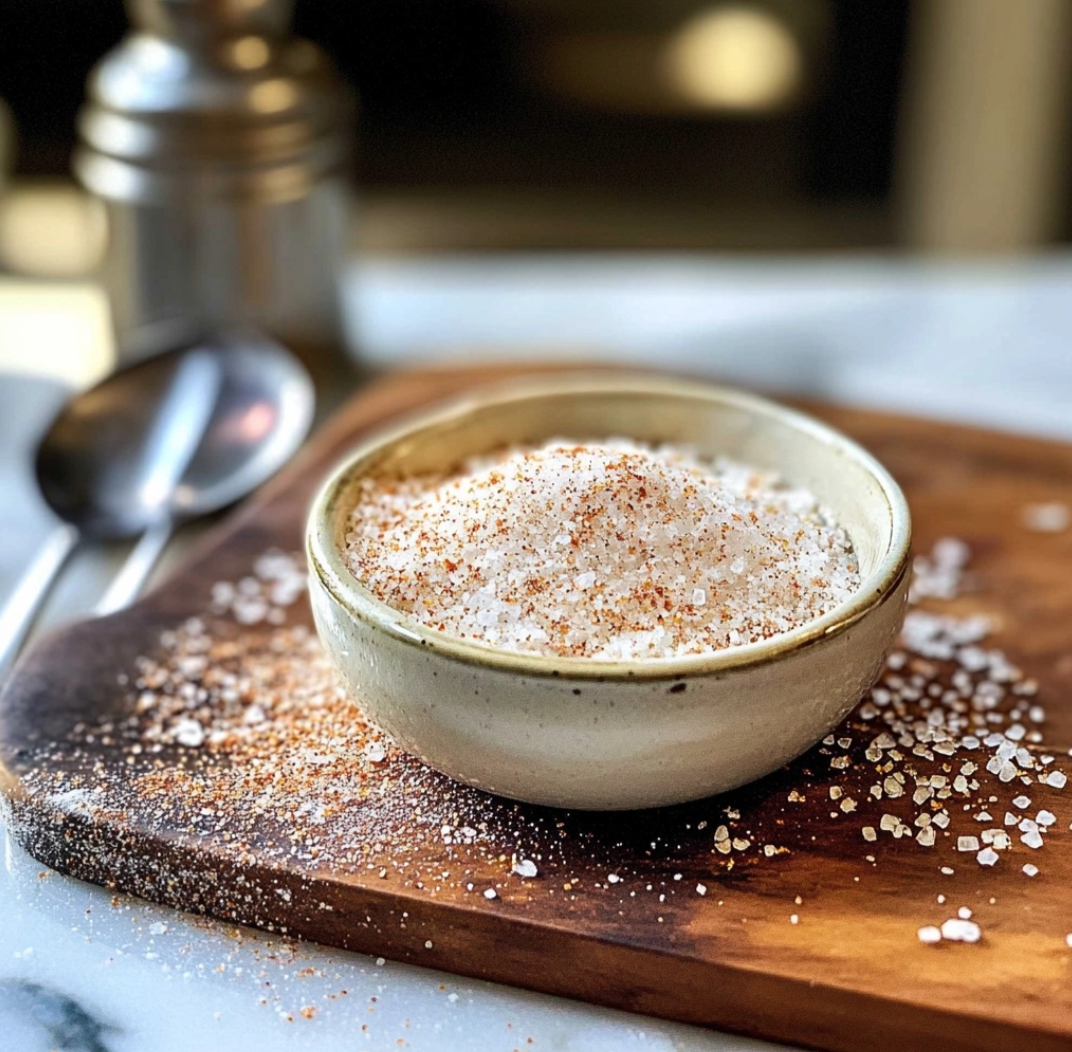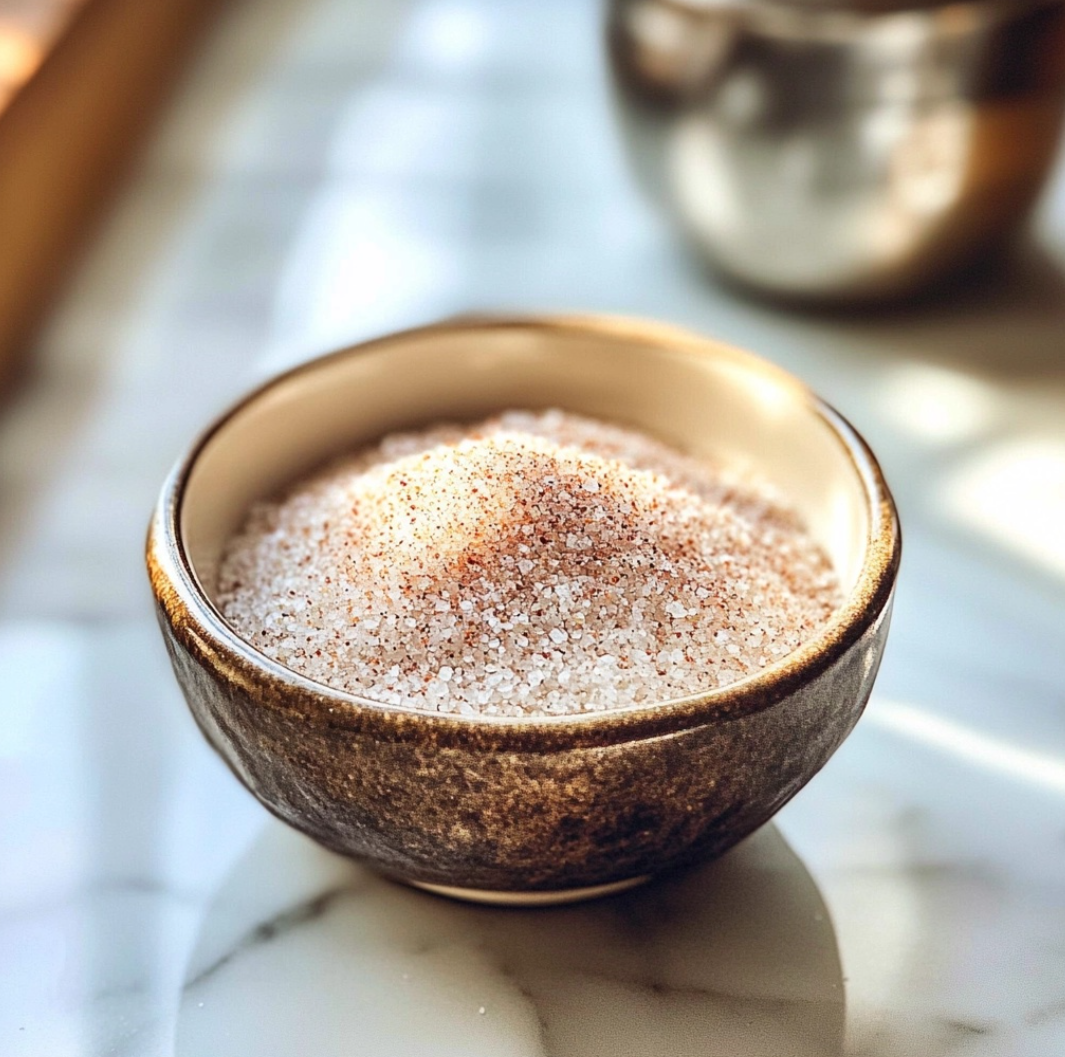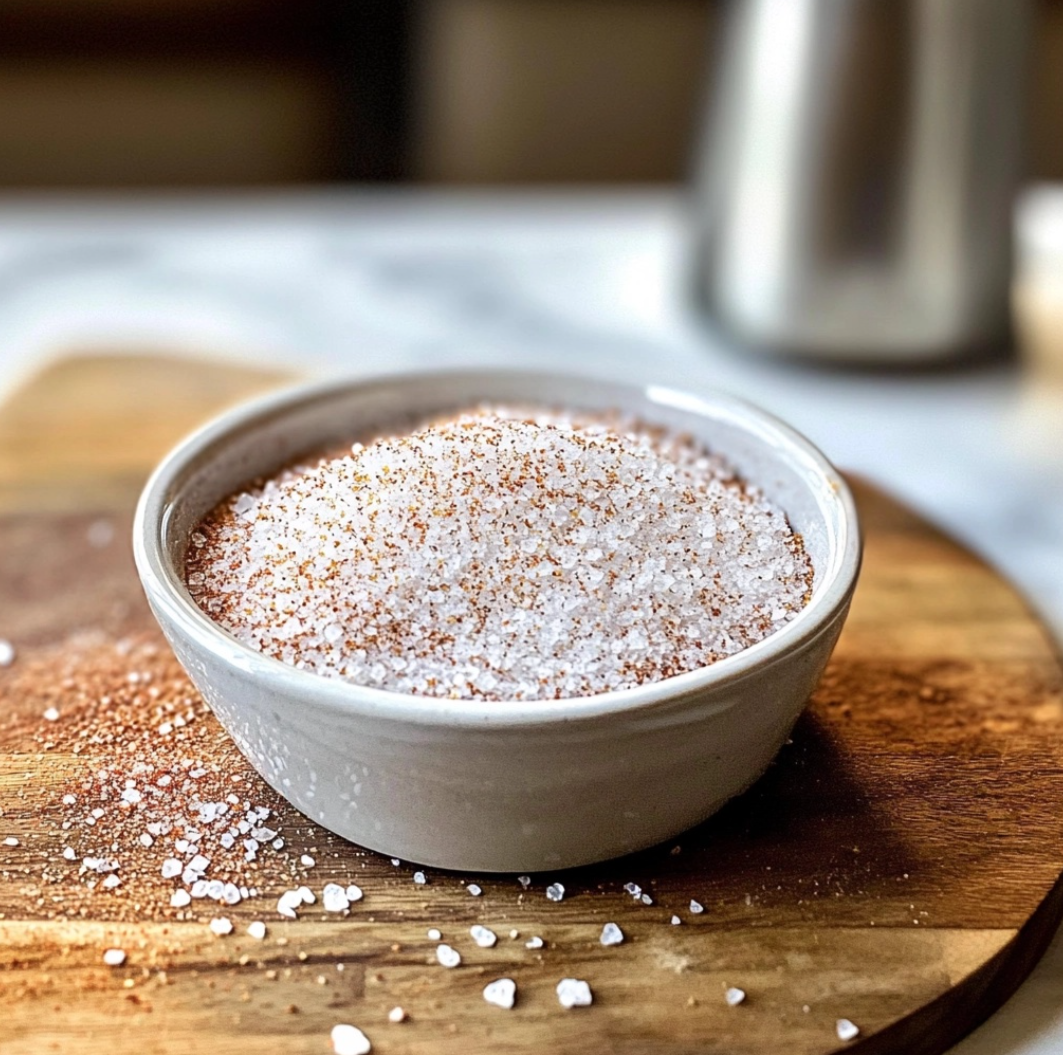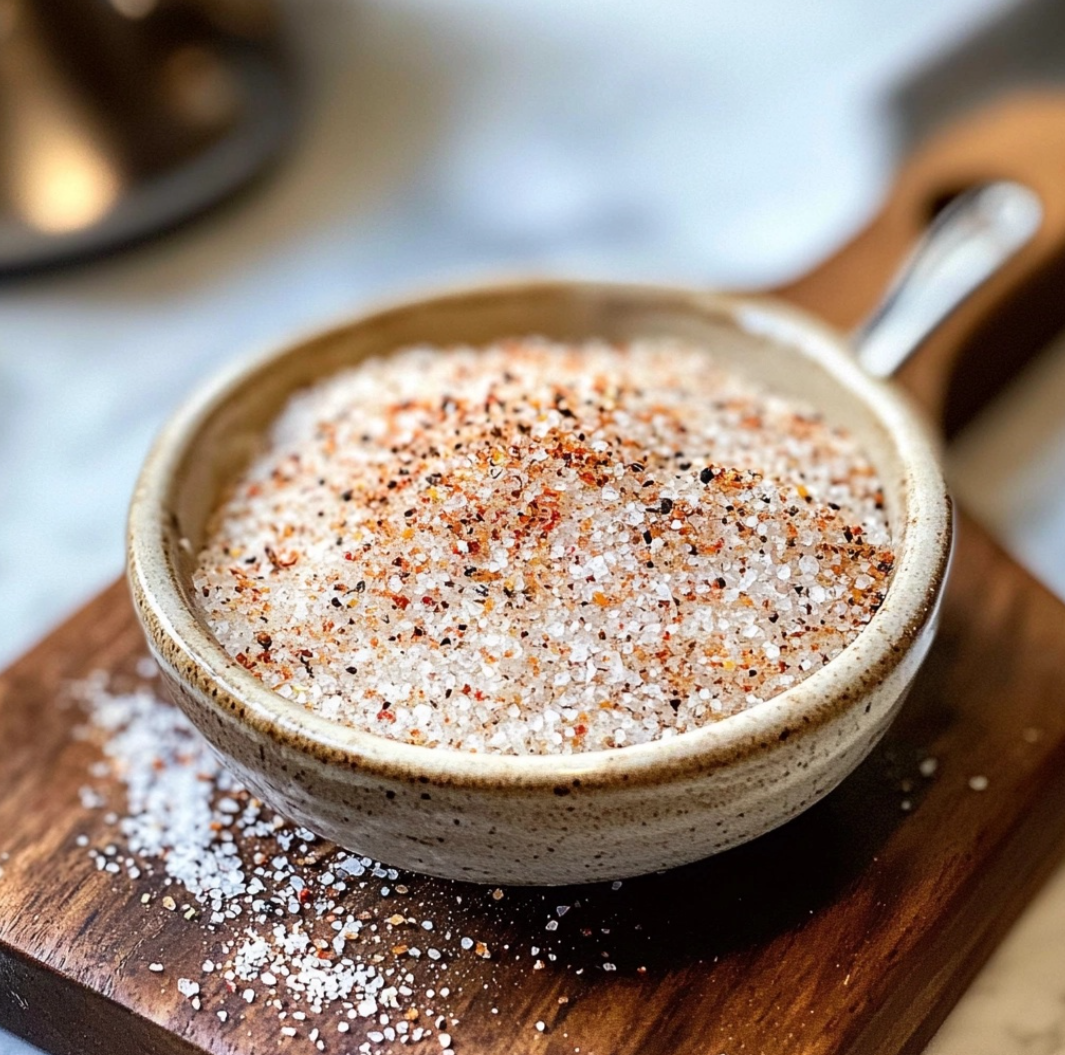1. Understanding Seasoned Salt: The Basics
What is Seasoned Salt?
Seasoned salt is a blend of salt and various spices that enhances the flavor of dishes. It is often used as a seasoning for grilled foods, roasted vegetables, and even popcorn. The beauty of making your own seasoned salt lies in the ability to tailor it to your specific taste preferences. This recipe incorporates common spices and herbs, providing a balanced flavor that can elevate a wide variety of dishes.
Why Make Your Own?
While pre-packaged seasoned salts are readily available in stores, making your own allows for complete control over the ingredients and flavors. You can adjust the salt content, choose organic spices, and add or omit ingredients based on your dietary needs or flavor preferences. Plus, there’s something satisfying about crafting your own spice blend, knowing exactly what goes into it.

Ingredients Overview
- Salt: The base of the seasoning blend, enhancing overall flavor.
- Garlic Powder: Adds depth and savory notes.
- Onion Powder: Provides a hint of sweetness and aroma.
- Paprika: Contributes a subtle smokiness and vibrant color.
- Black Pepper: Adds a mild heat and complexity.
- Ground Turmeric: Offers earthiness and a warm hue.
- Dried Thyme: Infuses an herbal fragrance.
- Crushed Red Pepper: An optional ingredient for those who enjoy a spicy kick.
2. The Basic Recipe for Homemade Seasoned Salt
Gather Your Ingredients
To start, you’ll need the following ingredients:
- 1/4 cup salt
- 2 teaspoons garlic powder
- 1 teaspoon onion powder
- 1 teaspoon paprika
- 1 teaspoon black pepper
- 1 teaspoon ground turmeric
- 1/2 teaspoon dried thyme
- 1/2 teaspoon crushed red pepper (optional)
Step-by-Step Directions
- Combine Ingredients: In a small bowl, add all the ingredients: salt, garlic powder, onion powder, paprika, black pepper, ground turmeric, dried thyme, and crushed red pepper if you prefer some heat.
- Mix Thoroughly: Use a spoon or whisk to mix everything together until all the spices are evenly distributed throughout the salt.
- Store Properly: Once well combined, transfer the seasoned salt to an airtight container or jar. This will help maintain its freshness and flavor.
- Usage: Your homemade seasoned salt is now ready to enhance grilled meats, veggies, or any dish that craves an extra kick! Sprinkle generously before or after cooking to enjoy the full flavor profile.
3. Advanced Techniques for Flavor Enhancement
Experimenting with Spices
While the basic recipe provides a fantastic foundation, feel free to experiment with additional spices to create a blend that’s uniquely yours. Consider adding:
- Cumin: For a warm, earthy flavor.
- Chili Powder: To amp up the heat.
- Coriander: For a citrusy touch.
- Lemon Zest: To introduce a fresh, zesty note.
Using Fresh Herbs
If you prefer fresh over dried, you can infuse your seasoned salt with fresh herbs. Simply chop herbs like rosemary, basil, or parsley finely, and mix them into your salt. Keep in mind that fresh herbs have a shorter shelf life, so store this blend in the refrigerator and use it within a few weeks.
Creating a Smoked Version
For those who love a smoky flavor, consider adding smoked paprika or using a smoking method. You can place the salt in a smoker or grill it briefly over indirect heat to give it a unique, smoky aroma.

4. Maintenance Tips for Your Seasoned Salt
Storage Solutions
To keep your seasoned salt fresh and flavorful:
- Use an Airtight Container: Store your seasoned salt in a cool, dry place in an airtight container to prevent moisture absorption and clumping.
- Avoid Light and Heat: Keep the container away from direct sunlight and heat sources, which can degrade the spices.
Shelf Life
Homemade seasoned salt can last for several months when stored properly. However, for the best flavor, try to use it within six months, as spices can lose potency over time.
Reviving Flavor
If you notice a decrease in flavor intensity, you can revive your seasoned salt by lightly toasting it in a dry skillet for a few minutes. This process releases the essential oils in the spices, enhancing their aroma and flavor.
5. Dietary Adaptations and Alternatives
Low-Sodium Options
For those looking to reduce their sodium intake, consider substituting half of the salt with a low-sodium salt alternative or a blend of herbs and spices. This allows you to enjoy the flavor without the added sodium.
Spice-Free Version
If you have dietary restrictions or simply prefer a salt-only blend, you can create a spice-free version by using only salt and adjusting the quantity to your taste. This is especially useful for individuals with sensitivities to certain spices.
Gluten-Free and Vegan
This homemade seasoned salt is naturally gluten-free and vegan, making it suitable for a variety of dietary preferences. Always check the labels of any additional spices you add to ensure they meet your dietary needs.

6. FAQs About Homemade Seasoned Salt
Can I use table salt instead of kosher salt?
Yes, you can use table salt, but keep in mind that table salt is finer and more concentrated than kosher salt. If using table salt, you might want to reduce the amount slightly to prevent an overly salty flavor.
How can I use seasoned salt in cooking?
Seasoned salt can be used as a dry rub for meats, sprinkled over vegetables before roasting, or mixed into marinades and dressings. It also works well as a finishing salt, adding flavor just before serving.
Can I gift homemade seasoned salt?
Absolutely! Homemade seasoned salt makes a thoughtful gift. Consider packaging it in a decorative jar with a personalized label. You can also include a recipe card suggesting how to use the seasoning.
How do I know if my spices are still good?
Spices generally lose potency over time. To test freshness, crush a small amount in your hand and smell it. If the aroma is weak or absent, it’s time to replace the spice.
Is it safe to store seasoned salt in glass jars?
Yes, glass jars are an excellent choice for storing seasoned salt. They’re non-reactive, won’t absorb odors, and can be sealed tightly to keep out moisture and air.

